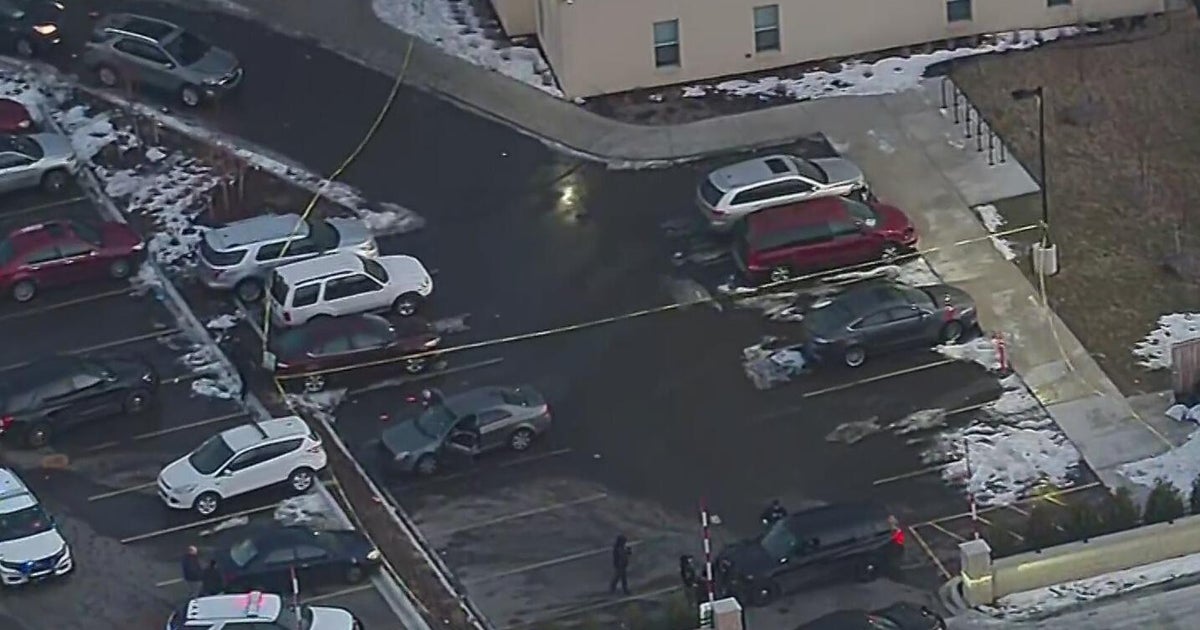Matt's Favorites: Curiosity Bounces Back, Thanksgiving Apps And More
So what's up with high tech on this fine Thanksgiving Eve? Check out this fine homemade stuffing, folks...
* A final reminder: Your WWJ Technology Report will not be published Thursday and Friday, so your humble narrator can celebrate Thanksgiving with family and friends. We'll be back Monday with more great Michigan technology information.
* Also, here are links to the Tech Report home page and Tech Report Page Two, where you will find much worthwhile news. Not to mention our latest report on Michigan's tech-related event notices, and tech-related awards and certifications.
* I messed up and didn't include links to a couple of audio interviews I did in connection with yesterday's story on a consortium of Detroit architecture and engineering firms being tabbed to design a new oil and gas engineering university in Basra, Iraq. They're in the story now, but in case you don't want to go back a day and look: Here's a talk with Albert Kahn CEO Alan Cobb, and here's a talk with Victor Saroki, CEO of Saroki in Birmingham, and Jamal Kalabat of Icon, about their work on the $600 million project.
* NASA's Mars rover Curiosity is back in action after being sidelined for nearly a week by an electrical problem. The 1-ton Curiosity rover resumed science operations six days after mission engineers noticed an odd voltage change and stood the robot down to investigate.
* Here's a great selection of Thanksgiving and Christmas holiday cooking apps for Android phones, and another list of iPhone holiday cooking apps.
* A TV bought on Black Friday, especially at a classic "doorbuster" sale, had better be as cheap as possible. But you shouldn't regret buying it. That's the philosophy TV expert David Katzmaier of News.com followed in compiling this list. He combed the major circulars, courtesy of BFAds.net, and found the cheapest TVs he'd actually recommend someone buy.
* In October, a report surfaced that the US National Security Agency secretly accessed data from tech giants like Google and Yahoo, by way of intercepting the unencrypted traffic flowing between each company's data centers. Specifically, it's believed the NSA tapped into the fiber-optic cables that connect those data centers. The New York Times reported Tuesday that these cables, which aren't owned by the Internet companies, are easy targets for interception. The largest such fiber-optic cable provider -- an under the radar Denver-based firm called Level 3 -- may have had something to do with the government's infiltration tactics. "Fingers have been pointed" at Level 3, reported the Times, citing three unnamed sources.
* Microsoft has been an outspoken critic of the National Security Agency's surveillance program, yet it has trailed behind other major tech companies in amping up its Internet encryption practices. However, that could soon change. The tech giant is looking to overhaul its system for encrypting Internet traffic, according to the Washington Post. Sources familiar with the matter told the newspaper that Microsoft is making the change because it believes the NSA might have breached its global communications systems.
* If you're into steampunk, you will love this car.
* Microsoft is responding to complaints about problems with some of the disc drives built into its new Xbox One consoles. The highly-anticipated Xbox One was released on Friday, and reports soon started cropping up of users who said their consoles produced a loud grinding or cranking noise when they loaded a disc. The problem soon picked up the online nickname, the "disc drive of death." Microsoft says it will replace any defective console, and also offered a free digital game download to affected users.
* Travelers who get lost at airports or train stations can now call on Google Street View to help them find their way. The ubiquitous mapping service has extended its coverage to 16 international airports, more than 50 train and subway stations, and a cable car platform in Hong Kong. A Google map displays the locations of all the new Street View transit spots.
* A new study shows that U.S. methane emissions could be up to 50 percent higher than government estimates. It does not indicate that emissions have increased – simply that they were measured inaccurately. In climate change discussions, carbon dioxide often gets more attention than methane, simply because it exists in much greater quantities. But methane actually traps 21 times more heat in the atmosphere than CO2.
* As chunks of debris barrel toward you and the bombastic sound of gunfire and artillery reinforce your perilous position, you are reminded of what makes a"Battlefield" title overwhelmingly intense. Couple that with the amplified visuals of next-generation hardware, and what you're left with is a military shooter the likes we haven't seen on console. "Battlefield 4" -- the latest entry in the series -- delivers the standout features PC players have enjoyed -- 64-player multiplayer modes, 60 frames per second, 1080p gameplay -- to the newly released PlayStation 4 and Xbox One, leaving you with a gaming experience that truly feels next gen.
* The son of successful lawyers, Snapchat founder Evan Spiegel grew up in a world of wealth, power, and privilege. Now the 23-year-old entrepreneur will be remembered for saying no to Mark Zuckerberg.
* Maybe you want to check out whatever it was that just went bump in the night. Or maybe you just want to see things in the dark. Here's a handy scope that goes nearly anywhere. Snooperscope is a wireless night vision device that uses your smartphone or other mobile device as a display. Part of a Kickstarter campaign, it can attach to your iPhone, Android phone, or tablet, as well as anything from a tripod to a helmet, bike, or wall.
* Motorola Mobility apparently couldn't wait for its low-cost Moto G to hit the United States. The Moto G went on sale in the U.S. on Tuesday, available only in the GSM variant and unlocked on Motorola.com for $179 without a contract.
* Unhappy with your battery-sucking iPhone 5S or your overheating Samsung Galaxy S4? You're not alone. Battery life and overheating issues were just two of the problems cited by users of four of today's top smartphones in a new report from tech Q&A site FixYa.
* Google's Dart programming language, an attempt to outdo JavaScript for writing Web apps, has had a polarizing effect on the Web. Mozilla and Microsoft don't like it, preferring to focus on improvements to the incumbent technology, JavaScript. But Google, which just released Dart 1.0, aims to speed up Web-based software and the programmers who write it.
* New Zealand design engineer Olaf Diegel has 3D-printed an electric guitar, bass, drum set, and keyboard, which will be played live at the EuroMold design fair in Frankfurt, Germany.
* The Justice Department has all but concluded it will not bring charges against WikiLeaks founder Julian Assange for publishing classified documents because government lawyers said they could not do so without also prosecuting U.S. news organizations and journalists, according to U.S. officials.
* A timely CareerBuilder survey finds that 23 percent of IT pros spend Thanksgiving with coworkers, in the office or at another location. But the findings vary widely by city -- just 6 percent in Boston to 35 percent in Atlanta. Detroit wasn't on the list.
* A premier science museum in North Carolina has sparked some controversy by refusing to show an hourlong film about climate change and rising sea levels. "The suppression of information is not in in the spirit of what a museum ought to do," says Charles "Pete" Peterson, a marine ecologist at the University of North Carolina's Institute of Marine Sciences in Morehead City. But museum officials deny any attempt to avoid the topic. "I have a track record of dealing with these issues head on," says Emlyn Koster, who directs the North Carolina Museum of Natural Sciences in Raleigh.







